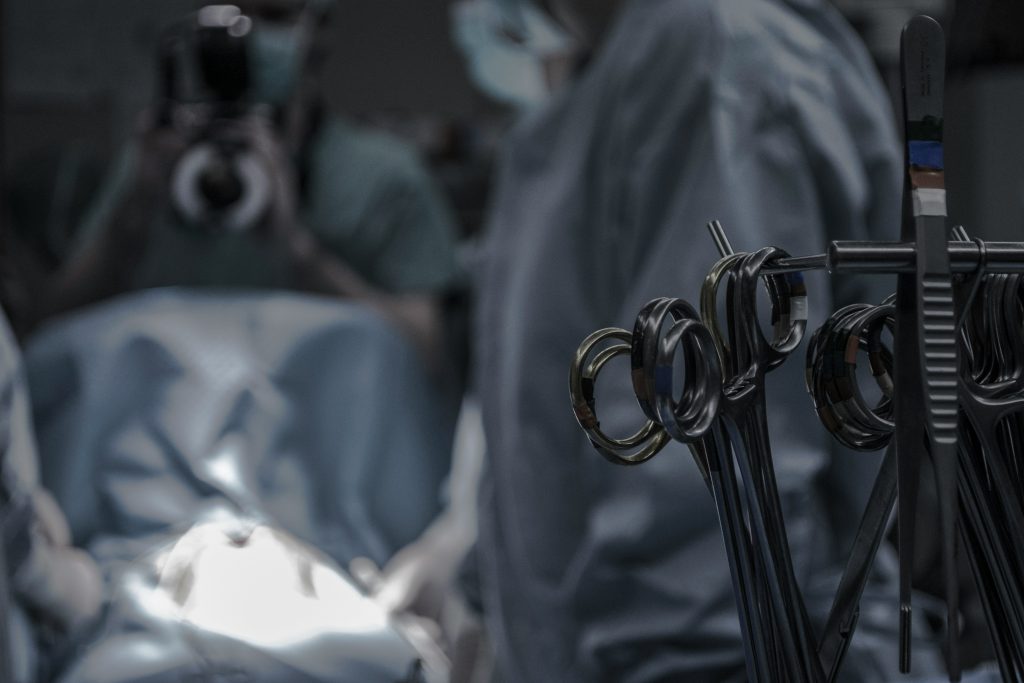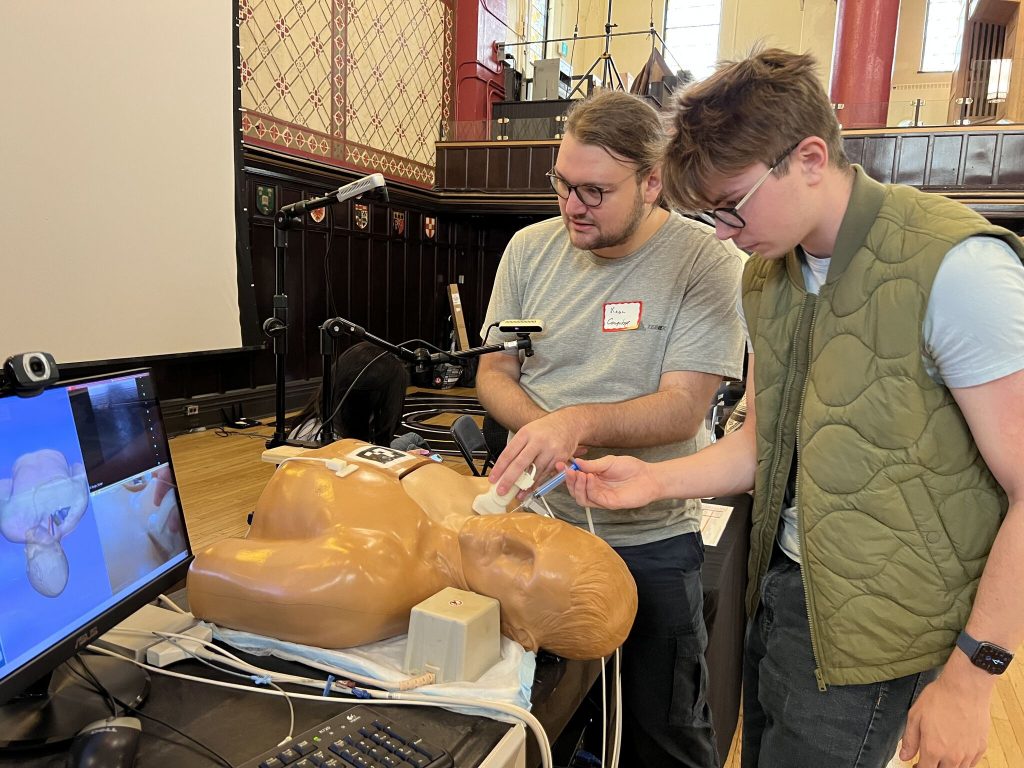About Us
Our lab specializes in developing technology for guiding surgical instruments during medical interventions, such as needle-based procedures and ablation therapies. We focus on both percutaneous and intra-cavity techniques, using imaging methods like CT scans, ultrasound, MRI, and fluoroscopy. Collaborating with leading clinical experts and industry partners worldwide, we aim to translate these advancements into clinical trials.
Multidisciplinary Envinronment
The Perk Lab engages in interdisciplinary research at the nexus of computer science, electrical engineering, mechanical engineering, and clinical sciences, such as radiology, radiation oncology, and surgery. Our students and postdocs, hailing from diverse backgrounds, benefit from co-advisement by multiple faculty members and collaborators. They participate in a curriculum covering medical image analysis, machine learning, mechatronics, and clinical ergonomics. Through hands-on implementation and validation, they gain practical experience in translating innovations into clinical trials.
Our strong industry partnerships ensure the relevance and potential commercialization of our research. This commitment has resulted in over 20 patents and inventions, with an impressive 80% involving student co-inventors and 50% led by students. This active involvement provides students with valuable insights into the life cycle of intellectual property.


Strategic and Collaborative Opportunities
The Perk Lab excels in interdisciplinary research, particularly in image-guided computer-assisted surgery, with strong connections to various clinical specialties. Renowned for our open-source software and systems, we collaborate globally and host the Computer-Integrated Surgery Graduate Exchange Program with Johns Hopkins University. This unique initiative allows students to work across both institutions, benefiting from a vast network of partners. Dr. Fichtinger’s appointments at Queen’s and Johns Hopkins facilitate diverse interdisciplinary collaborations, enhancing the Perk Lab’s impact.
Collaborations
Queen’s University
The Perk Lab participates in the following groups:
1) Biomedical Computing Group (6 faculty labs, School of Computing)
2) Biomedical and Intelligent Systems Group (7 faculty labs, ECE)
3) Human Mobility Research Center.
As a member of the Faculty of Medicine, Dr. Fichtinger collaborates with clinical colleagues in:
1) Surgery (Drs. Rudan, Pichora, Borschneck, Engel, Wallace, Cook, Levy)
2) Anesthesiology (Drs. Jaeger, Sydor), Urology (Drs. Siemens, Beiko)
3) Pathology (Dr. Berman)
4) Radiation Oncology (Drs. Schreiner, Falkson, Joshi)
5) Emergency medicine (Drs. McGraw, Rang, McKaigney)
At the Clinical Simulation Centre, the Perk Lab collaborates with Drs. Reznick and McGraw in medical education technology research toward translating the School of Medicine onto a Competency-based Medical Education curriculum model.
Canada
Cancer Care Ontario Applied Cancer Research Unit – Dr. Fichtinger is the PI of this consortium with the mandate to develop and disseminate an open source software platform for translational clinical research and system prototyping in radiation oncology and adjuvant image-guided intervention and surgeries. The primary consortium members are Queen’s, Western University and the University Health Network (Toronto). Major collaborators include University of British Columbia, Harvard University (USA), Johns Hopkins University (USA), Medical University of Vienna (Austria), Instituto de Ingeniería Eléctrica (Uruguay) and the University of Western Australia under the Matariki Network.
Ontario Consortium for Adaptive Image Guided Radiation Oncology – This consortium pulls together world-class research power in adaptive radiation therapy. The combined research capacity of the 20 industry co-funded investigator groups represents well over half of the radiation therapy treatment capacity of the entire province of Ontario. The Perk Lab leads the consortium’s efforts in developing a “Shared Open Source Translational Research Platform for Adaptive Radiation Oncology”, working in a de-facto collaboration with all the investigator groups comprised in the consortium.
International
Center for Computer Integrated Systems and Technologies, USA (www.cisst.org): Established in 1998 as the largest medical robotics and computer-assisted surgery development hub. Since 2007, the has center fused into the Laboratory of Computational Robotics and Sensing (LCSR, www.lcsr.jhu.edu). Dr. Fichtinger is Co-PI on three major collaborative RO1 research programs with the Johns Hopkins University Whiting School of Engineering and Johns Hopkins Hospital, funded by the U.S. National Institutes of Health.
National Alliance for Medical Image Computing, USA (www.na-mic.org): The world’s largest and most successful effort in open source software platform development for medical image computing and visualization. The resulting Slicer platform has had over 160,000 downloads in the past 12 months alone. The Perk Lab leads in SlicerIGT open source software platform extension for image-guided therapy and participates in the competitive renewal application of the Alliance, funded by the U.S. National Institutes of Health.
National Center for Image Guided Therapy, USA (www.ncigt.org): the world’s leading centre in magnetic resonance image guided therapy. Dr. Fichtinger is a member of the Advisory Board and Co-PI of the center’s Biomedical Research Partnership program on “Enabling Technologies for MRI-guided Robotic Interventions”, funded by the U.S. National Institutes of Health.
Austrian Center of Medical Image Technology, Austria (www.acmit.at): one of the few European Union Competence Centres with a dozen academic institutions and over 20 industry partners spread on three continents. Dr. Fichtinger is a Key Researcher in the Medical Robots Thrust and Co-PI of the “Image-guided Robotic Gynecological Implants” project, conducted in partnership with the Medical University of Vienna (Austria) and Nucletron Corporation (Netherlands).